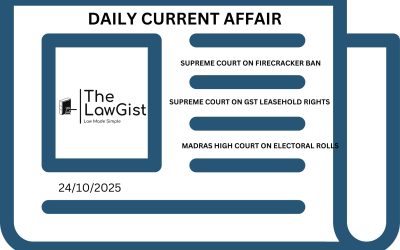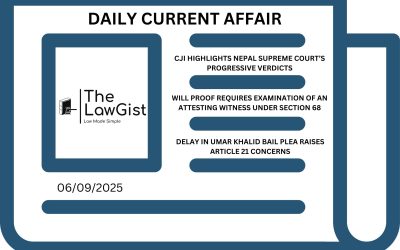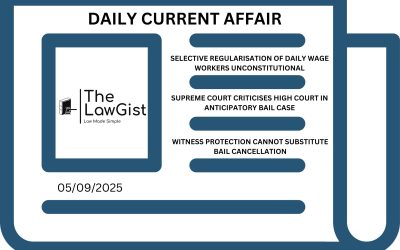
Tahawwur Rana extradited to India in 26/11 case; to be tried under UAPA and Indian Penal Code amid global legal scrutiny and treaty-bound restrictions.
TAHAWWUR HUSSAIN RANA EXTRADITION: LEGAL INSIGHTS
CASE IN NEWS
Tahawwur Hussain Rana, a key accused in the 2008 Mumbai terror attacks and one of India’s most wanted fugitives, is being extradited from the US to face trial in India after years of legal and diplomatic efforts.
CASE OVERVIEW
Tahawwur Rana was picked up by the US in 2009. He was sentenced in 2011 for offenses that were not related to the 26/11 Mumbai attack. However, he has long been sought by the Indian authorities in connection with his alleged role in the attacks of 26/11, which killed 166 people in Mumbai. After long legal battles in the US and touching diplomatic negotiations, he was extradited to India in 2025 in terms of the India-US Extradition Treaty.
KEY ASPECT
- Tahawwur Rana has been brought to India under the India-US Extradition Treaty (1997).
- Tahawwur Rana faces charges for criminal conspiracy, murder, waging war against India, and violations under the UAPA
- Under the extradition agreement, his trial will be restricted only to charges warranted by the extradition treaty (Rule of Speciality).
LEGAL INSIGHTS
- Rule of Speciality: Under Article 14 of the India-US Extradition Treaty, Rana can be tried only for the extraditable offences affirmatively laid down in the decision of extradition. Any infraction in that regard would make it imperative to seek US consent.
- Fair Trial Obligations: India must make assurances regarding Rana’s treatment, to ensure there is no torture and adequate prison safeguards.
- Extradition Act, 1962 Compliance: Each step mentioned in the Indian law has to be followed according to Court Production, Right Guarding, a legitimate trial, or an observation discussed with the declaration made before.
- No Re-extradition: Rana cannot be extradited for pre-trial offences to a third country without US permission.
IMPACT
- This is a huge diplomatic and legal success for India to hold the masterminds of 26/11 accountable.
- It will serve as a precedent for future extraterritorial disposition or extradition of international terrorists.
- It strengthens India-US cooperation in legal matters and trust under the bilateral treaty framework.
- It also rekindles public discourse and political attention on the long-pending justice for the 26/11 victims.
FINAL NOTE
Tahawwur Rana’s extradition to India symbolizes a long-overdue step towards justice in one of the darkest chapters of Indian history. As the trial unfolds, all eyes will be on how India balances legal rigour with its treaty obligations and human rights assurances.
Source- Ministry of External Affairs
Also Read- SUPREME COURT OF UNITED STATES CLEARS RANA’S EXTRADITION







